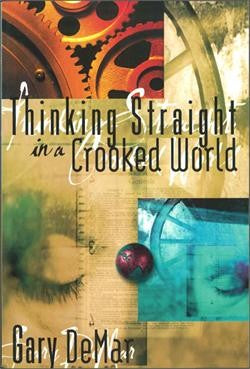Gary discusses an article about the upcoming presidential election and the fatigue about the entire process being experienced by the majority of voters.
There are problems with some kinds of circular arguments. But you might be surprised to know that you can’t help arguing in a circle. At some point, everyone has to argue in a circle. Why? Because everyone has certain assumptions. No one is neutral. When someone challenges your assumptions or belief patterns, you either have to use a circular argument, or you have to change your presuppositions, which will also lead to a circular argument.
Of course, not all circular arguments are reasonable or valid. For a person to claim that he should be worshiped because he is god, based on his own assertion that he is god, is not the type of circular argument that is being examined. “Circularity in a system is properly justified only at one point: in an argument for the ultimate criterion of the system.”
But what happens when two circular arguments—each claiming ultimate authority for their worldview—don’t agree? Each worldview must be “put to the test,” working out the logical implications of the stated presuppositions. Which one best fits with reality? For example, the Bible contains thousands of prophecies about numerous events spanning thousands of years. The Bible sets the standard for determining how to evaluate prophecies: They must always come to pass; there can be no mistakes (Deut. 18:18–22). The Bible can be easily tested by its own standards.

Thinking Straight in a Crooked World
The nursery rhyme "There Was a Crooked Man" is an appropriate description of how sin affects us and our world. We live in a crooked world of ideas evaluated by crooked people. Left to our crooked nature, we can never fully understand what God has planned for us and His world. God has not left us without a corrective solution. He has given us a reliable reference point in the Bible so we can identify the crookedness and straighten it.
Buy NowGary discusses an article about the upcoming presidential election and the fatigue about the entire process being experienced by the majority of voters. Most people are more concerned with the pressing affairs of their daily life than with the current state of Washington corruption. Tired of being constantly pummeled by political noise, many are checked out, but this doesn’t prevent media outlets from creating stories out of thin air (or Twitter).

